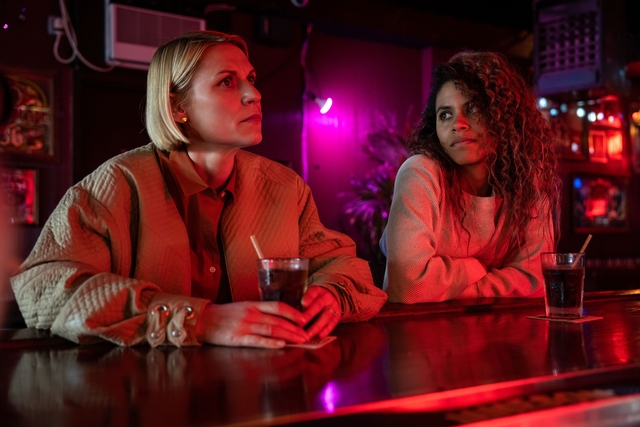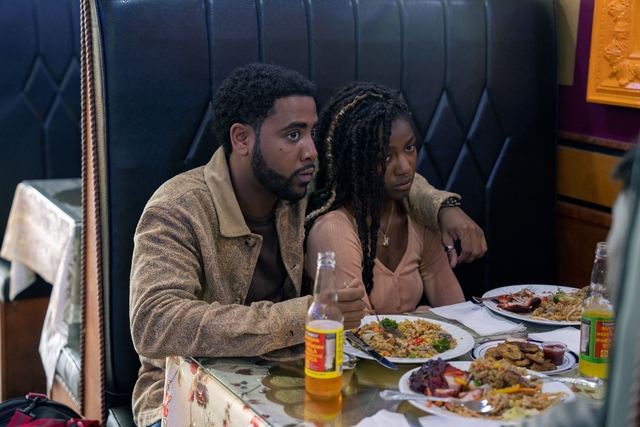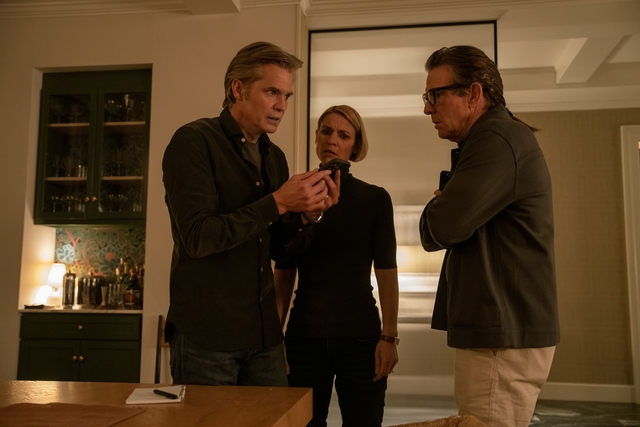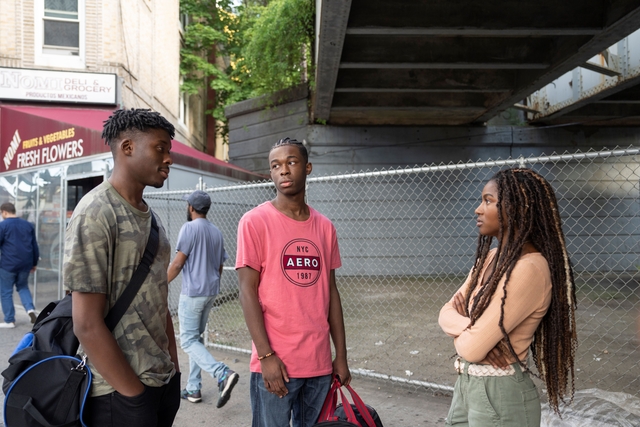
Fatalism should make life simple. Once you embrace the belief, whether secular or spiritual, that everything happens as part of a grand cosmic plan, you can relax, safe in the knowledge that the universe (or God, or science) has had your discrete destiny gamed out since the dawn of time. But that’s not how fate—or is it free will?—operates in Max’s Full Circle, a cluttered yet compelling thriller directed by Steven Soderbergh. As conceived by creator Ed Solomon, the trajectory of human life isn’t a straightforward circle of cause and effect so much as it’s a tangled web of emotion, self-interest, faith, luck, character flaws, and above all history.
Rolling out between July 13 and 27, with two episodes dropping weekly, the series applies this worldview to the case of a seemingly incomprehensible kidnapping. In Queens, the brother-in-law of a Guyanese crime boss, Savitri Mahabir (CCH Pounder), is murdered by a rival family. But instead of exacting revenge on the immediate culprits, as her ambitious nephew Aked (Jharrel Jerome) proposes, Savitri—who believes the Mahabirs are cursed—travels to her home country, consults a mystic, and returns to New York convinced she knows how to close the circle of misfortune that has afflicted her family. Weirdly, the remedy entails abducting the hapless teen son, Jared (Ethan Stoddard), of a rich, white Manhattan couple.

The question of what score the Mahabirs could possibly have to settle with Jared’s parents, Sam (Claire Danes) and Derek Browne (Timothy Olyphant), becomes the show’s central mystery. Separated by just a few miles in the physical sense, the two families occupy entirely different social worlds. When they’re not scolding Jared for misplacing his every personal possession, the Brownes work in the entertainment industry, managing the career of Sam’s food-media personality dad, Chef Jeff (Dennis Quaid). But, unsurprisingly, everyone in this household is keeping potentially destructive secrets from everyone else—Jared included.
Solomon complicates this unlikely convergence of circumstances in New York City with the addition of many other fascinating people, whose names can be difficult to keep straight but whose specificity is a credit to both the creator and the excellent cast. Zazie Beetz stands out as the absurdly named Melody Harmony, an obsessive, abrasive, but also spookily intuitive postal inspector who stumbles upon the kidnapping plot and pesters her selfish boss (Jim Gaffigan) to put her on the case. Also fantastic are relative newcomers Adia (The Midnight Club) as Savitri’s massage therapist Natalia and Gerald Jones (Vampires vs. the Bronx) as Louis, the brother she unwittingly helps the Mahabirs import from Guyana, along with his best friend Xavier (Sheyi Cole from Small Axe), to execute the abduction. Good-hearted people in increasingly desperate straits, they form the emotional center of a narrative where everyone is morally compromised.

Along with Soderbergh’s agile direction, which balances dynamic action sequences with tense tête-à-têtes, it’s the characters’ realistic idiosyncrasies that distinguish Full Circle from TV’s many forgettable thrillers. Too often, in this kind of show, the personalities on screen are written as afterthoughts, tangential to plots that glide along as if orchestrated by, yes, fate. Here, however, it matters that Jeff is a self-satisfied space cadet, and that Sam (whose Type-A-Manhattan-mom hypercompetence recalls Danes’ indelible Fleishman Is in Trouble character) grew up feeling like the only adult in the room. It matters that Aked—who, to further complicate allegiances, is also Natalia’s fiancé—sees himself as a mastermind but feels stymied by his position at the bottom of his family’s hierarchy. People are always inadvertently getting in their own and each other’s way, with unpredictable consequences that nonetheless make sense in retrospect.
Full Circle might have been a masterpiece if the ideas underlying these relationships weren’t pushed to the margins by the unwieldy plot. Themes of inequality and justice, American money and Guyanese suffering, do emerge. And in these unsubtle times, no one needs another show that overstates its moral: It’s about global capitalism, dummy! But the dearth of attention paid to what really happened back in Guyana, and why, left me with the sense of something crucial missing. By lopping off a few questionably necessary moving parts—a third organized-crime ring surrounding a casino, for example, or the multi-agency confab that muddles Melody’s rogue investigation—Solomon and Soderbergh could’ve made room for deeper insight.

Still, to the extent that the massive, tragicomic, continent-spanning human mess of it all becomes a resonant theme unto itself, Full Circle leaves us with an enriched perspective on fate. Whether it’s prescribed by a shaman or encoded in our DNA, what we think of as our personal destiny is too inextricably entwined with that of everyone we encounter—or maybe everyone in the world—to play out as simply as we’d like to imagine. And that’s if it exists at all.
More Must-Reads From TIME
- The 100 Most Influential People of 2024
- How Far Trump Would Go
- Scenes From Pro-Palestinian Encampments Across U.S. Universities
- Saving Seconds Is Better Than Hours
- Why Your Breakfast Should Start with a Vegetable
- 6 Compliments That Land Every Time
- Welcome to the Golden Age of Ryan Gosling
- Want Weekly Recs on What to Watch, Read, and More? Sign Up for Worth Your Time
Contact us at letters@time.com